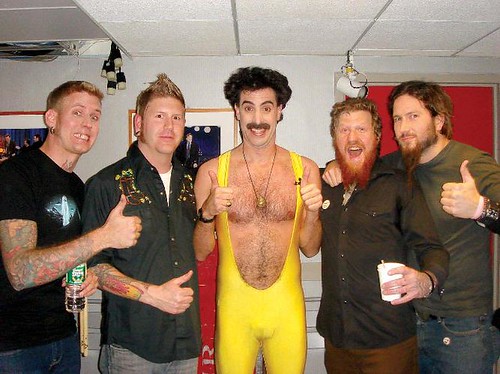Mastodon: A Condensed History
 In anticipation of the mighty Mastodon returning to Montreal this May (brought to you in part by none other than CJLO RADIO), our very own harbinger of doom Brian Hastie (host of Countdown to Armaggedon) has laid down a little history lesson for those poor, unfortunate souls unfamiliar with the band's vibrant, nine year history. Read on...
In anticipation of the mighty Mastodon returning to Montreal this May (brought to you in part by none other than CJLO RADIO), our very own harbinger of doom Brian Hastie (host of Countdown to Armaggedon) has laid down a little history lesson for those poor, unfortunate souls unfamiliar with the band's vibrant, nine year history. Read on...
The name Mastodon evokes images of a large, powerful beast lumbering through a wooded area to most. I should know – I informally polled friends and family and all seemed to reach a similar conclusion. So it seems fitting that a band with such an image-intensive name should come across as strongly as their name invokes, a muscular attack that's short on pauses and long on a crushing wall of cascading sound that's lasted through four very distinct records.
Before Mastodon, though, there existed only four members of diverse backgrounds, toiling away in regionally-successful bands and hoping for more before the cosmos aligned and allowed them to join forces. Despite its band members being unpretentious, down-to-earth fellows (as is demonstrated by countless interviews as well as their Workhorse Chronicles DVD), Mastodon's high-brow take on the cosmos is ingrained within much of the band's work, specifically highlighted in their most recent outing, 2009's Crack The Skye. However, tirelessly tying in elemental concepts into the very fabric of their records without letting the 'concept' portion of the lyrics and music overtake the individual songs themselves is a tough balancing act.
The Years Before…
Drummer Brann Dailor's most prominent band pre-Mastodon was Rochester, N.Y.'s Lethargy, which was active from 1992 to 1999. Dailor met future Mastodon guitarist Bill Kelliher when the latter joined Lethargy in 1995. The group disbanded in 1999 after releasing just one studio album (1996's It's Hard To Write With A Little Hand) and one compilation (Discography '93-'99). Dailor and Kelliher then both relocated to Boston, Massachusetts to record with Steve Austin's noisegrind outfit Today Is The Day. The result, 1999's In The Eyes Of God, found Kelliher trading in his guitar for a bass and was the sole involvement the duo had with TITD. They moved to Atlanta, Georgia in late '99 due to Kelliher's desire to live with his girlfriend.
The other half of Mastodon, bassist Troy Sanders and guitarist Brent Hinds had spent some time in Four Hour Fogger, touring regionally since 1995. The duo's tenure with the band was coming to a close due to the other band member's waning interest in the band and Hinds and Sanders found themselves looking for new people to collaborate with.
The band now known as Mastodon formed when Dailor, Kelliher, Sanders and Hinds met at a High On Fire show. Within weeks of meeting each other, the quartet had come up with some strong musical ideas and were ready to proceed. They recruited vocalist Eric Saner (who was formally one of two vocalists in A Death Between Seasons) and in 2000 recorded a 9-song demo. At this point it was clear that Saner did not fit the musical stylings the rest of the band and left later on in 2000, leaving Sanders and Hinds to assume vocal duties.
The band released 2 EPs in 2001: the first was the Slickleg 7" picture disc (originally put out by Reptilian Records) containing 3 re-recorded renditions of tracks that originally appeared on the 2000 CD-R demo, and the second was the Lifesblood EP, which contained 5 more re-recordings. The 2006 Call Of The Mastodon compilation eventually collected all of these tracks (minus the samples contained within the original versions.)
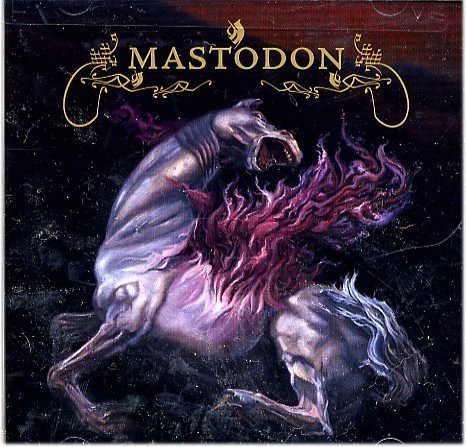
2002 – Remission…
After the release of the Slickleg EP, the band inked a deal with Relapse Records in 2001, who put out the second EP. The band's first proper studio album, Remission, was released on May 28th, 2002 to near-unanimously positive reviews and very good sales for an underground metal release. The band's brand of galloping rhythms and carefully-planned arrangements (which has become their signature) was present in full force. Whereas the EPs and demo showcased a band intent on displaying a tight, cohesive package that leaned less towards their eventual progressive leanings, Remission upped the ante with tracks like "Trainwreck" and "Trilobite", displaying the fact that the band could ebb and flow better than most of their counterparts, inserting quiet instrumental parts that meshed well with the harder-edged material being offered up. They launched the first single, "March Of The Fire Ants", in 2003, and followed that up with the second single "Crusher Destroyer". The record was re-released a year later with a cover of Thin Lizzy's "Emerald" tacked onto the end of the record, showing that the band was unafraid to tackle music not necessarily of their own genre, imprinting their own stamp upon the classic '70s song in the process. The band embarked on a myriad of tours, pairing up with the likes of Clutch and Neurosis, before returning to Atlanta to record their breakthrough follow-up.
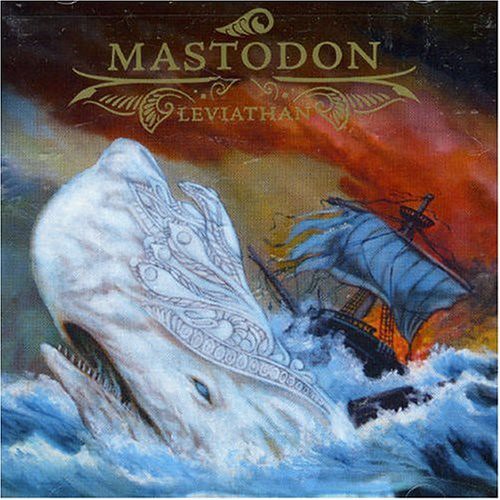
2004 – Leviathan…
The band recruited former Botch axeman Matt Bayles to co-produce their sophomore outing. The result was Leviathan (released on August 31, 2004), a loose concept album based upon Herman Melville’s classic sea tale Moby Dick, which also simultaneously represented the water element. The album's opening track (as well as single), "Blood and Thunder", whose intro riff was a noted calm before the aural storm, featured Clutch's Neil Fallon in the second verse. Its chorus ("White whale/holy grail") definitely made the concept of the record clear, as the rest of the lyrics evoked similar nudges towards the source material.
The other prominent guest on the record was Neurosis singer/guitarist Scott Kelly, who shows up on "Aqua Dementia". The record proved to be a small departure from Remission, containing a few clean singing parts and incorporating other styles of music in short bursts, including alt-rock and a tiny bit of country. The album's centerpiece, the 13-and-a-half-minute "Hearts Alive", starts with the sound of crashing waves, slow-paced drum rolls and subdued, barely-amplified guitar lines. The song really kicks in at the 2-minute mark, building into a pulsating, driving torrent that alternates between quiet, almost-whispered vocals by Sanders countered by out-and-out aggressive moments screeched by Hinds.
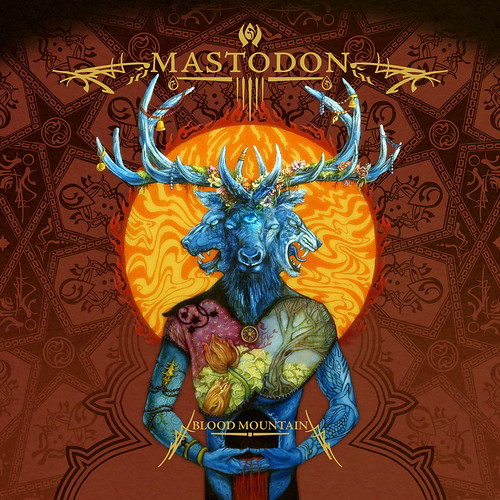
2006 - Blood Mountain…
2006 brought Blood Mountain to the masses. Once again produced by Matt Bayles (and put out by Warner Music, in collaboration with Reprise Records), the record was loosely modeled after the earth element. Though more subdued musically than Leviathan (with more clean singing parts as well as quieter musical moments), it still retained the spirit of the early two albums. Whereas before Sanders and Hinds previously screamed and growled in time with the rhythm laid out by the drums, there was a strong vocal presence in the songs this time around, stressing actual vocal melodies and the occasional harmony in-between members. Scott Kelly once again made an appearance on "Crystal Skull", and Queens of the Stone Age singer/guitaris Josh Homme made an appearance on single "Colony of Birchmen". Cedric Bixler-Zavala and Isaiah Owens, the singer and keyboardist of The Mars Volta, both show up sporadically on the disc as well. The record went on to sell more than 150,000 copies in the U.S. since its release, and also brought the band their first Grammy nomination for "Colony of Birchmen".
During this time the band made a quick detour into the absurd, penning a song entitled "Cut You Up With A Linoleum Knife" for the Aqua Teen Hunger Force film. The 2-minute long song shows the band's playful attitude as they go through lyrics extolling the virtues of employing proper movie theater etiquette…or else, as Dailor sings in his best falsetto, they will cut you up with a linoleum knife. The band also showed a sign of things to come by covering Metallica's "Orion" for a Kerrang magazine tribute to the band's Master Of Puppets record. The instrumental, which was faithfully delivered by the band, showed a quieter, more streamlined direction that toned down the controlled chaos and revolving door time-signatures that had been their faithful M.O. since their early days.
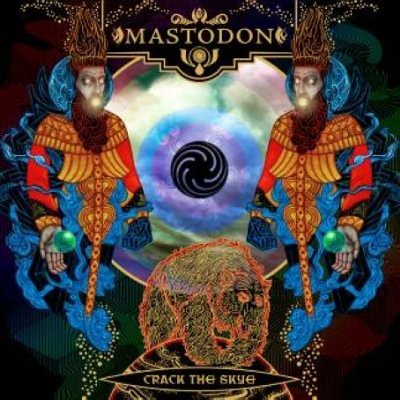
2009 - Crack The Skye…
The most recent Mastodon release, Crack The Skye, was released on March 24th, 2009. This time around, the record was produced by renowned rock producer Brandan O'Brien (best known for helming albums by such rock staples as Pearl Jam, Bruce Springsteen and the Stone Temple Pilots), and is a stylistic departure from their past albums as clean vocals are prominent on the release as well as less metal elements, edging more towards prog rock territory. The record's concept (a disabled boy who astral projects too close to the sun and gets stranded in outer space before ending up in a spirit realm that confuses him for another spirit, which sends him to a Russian cult where he ends up tangling with Rasputin…to put things VERY simply…) was explored over 7 tracks, two clocking in at over 10 minutes. The overall theme of the record, was much more elaborate than past works. Somehow though, songs like "The Czar" and "Oblivion" stood up on their own, with their lyrics still vague enough for many to insert their owning meaning to the songs and not have to follow the storyline closely in order to enjoy the recordings. A notable milestone was also reached by the band with this release, as it was both lyrically and musically representative of the air element. This brought the band’s pattern of thematically arranging their albums around the four elements, beginning with fire (Remission), through water and earth (Leviathan and Blood Mountain) then finally to air (Crack the Skye), full circle.
The record managed to hit #11 on the Billboard Top 200 chart, selling 41,000 copies in its first week, before the band embarked on a headlining tour with Kylesa and Intronaut to support it. However, for this record, the band has chosen a new way to introduce audiences to the material (which they purposely avoided playing live prior to the record’s release) as they will be playing Crack the Skye in its 45 minute entirety every night, before concluding with a shorter set of classics. Whether or not this tactic will win over those who are disappointed with the band’s new direction remains to be seen. However, this dual dedication to the source material and their own creativity as well as their fan base is indicative of their work ethic on the whole and sure does add a hell of a lot of credence to all those “Next Metallica” labels they’ve received over the years.
Want more??? Stick to the CJLO Magazine over the coming weeks as we bring you more Mastodon madness in the form of Brian’s thrilling interview with Mastodon drummer Brann Dailor! If that doesn't crush your mind entirely, don’t forget to check out Brian on Countdown to Armageddon, every Thursday from 4 to 6 PM on Montreal’s home for independent metal, CJLO!
